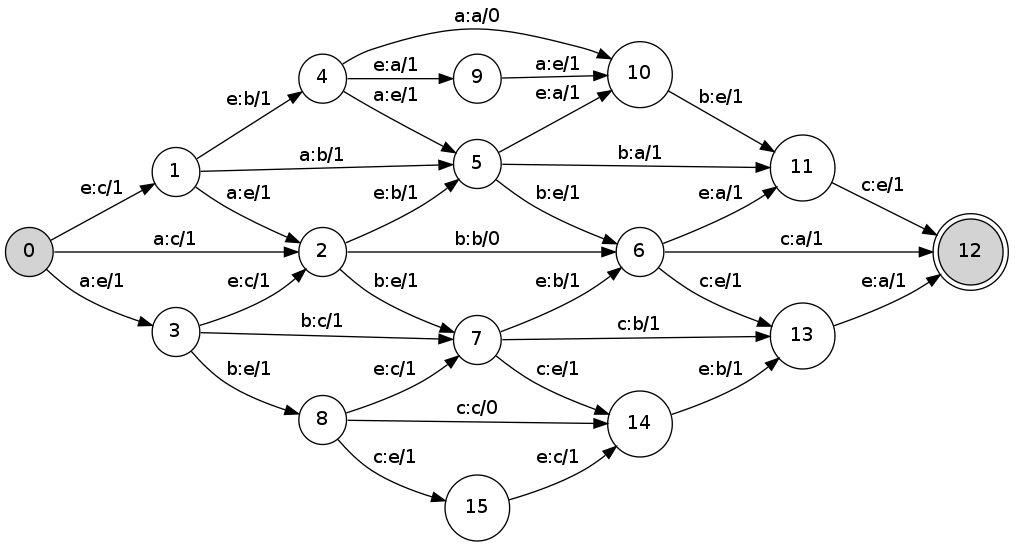Finite state transducer library. Minimalistic pure C implementation. This project is mostly inspired by OpenFST library (http://www.openfst.org) by Michael Riley and Mehriar Mohri. The main focus here is a performance and simplicity.
The package could be used to construct n-gram language models and as a construction block for decoders in speech recognition and spelling correction. It could be used for the tasks of discrete optimization on sequences (e.g. levenstein distance).
Let's create an automaton that accepts "(01)*" regular language. We need a fscompile command:
echo "\
0 1 0 0
1 0 1 1
0" | fscompile > automaton.tEach line contains either transition or final state.
Transition line format:
- source state
- destination state
- input label
- output label
- (optional) weight
Final state line contains only a number of a state.
To print it just invoke fsprint command:
fsprint automaton.tor as usual pipe:
cat automaton.t | fsprintTo compose transducers one should use the fscompose command:
fscompose aut0.t aut1.t > aut3.tIt could be done in the pipe style with more then two automata:
cat aut0.t | fscompose - aut1.t | fscompose - aut2.t > aut3.tWarning: a proper sorting of input/output arcs could be significantly increase the performance.
Use fsshort command to get the the transducer with the shortest path:
fsshort automaton.t > shortest_path.tWe could draw automaton using fsdraw command. To actually render it you need dot utility from the Graphviz package. Make sure you have Graphviz (http://www.graphviz.org) package properly installed.
To render a transducer to png file use the following:
fsdraw automaton.t | dot -Tpng > automaton.png